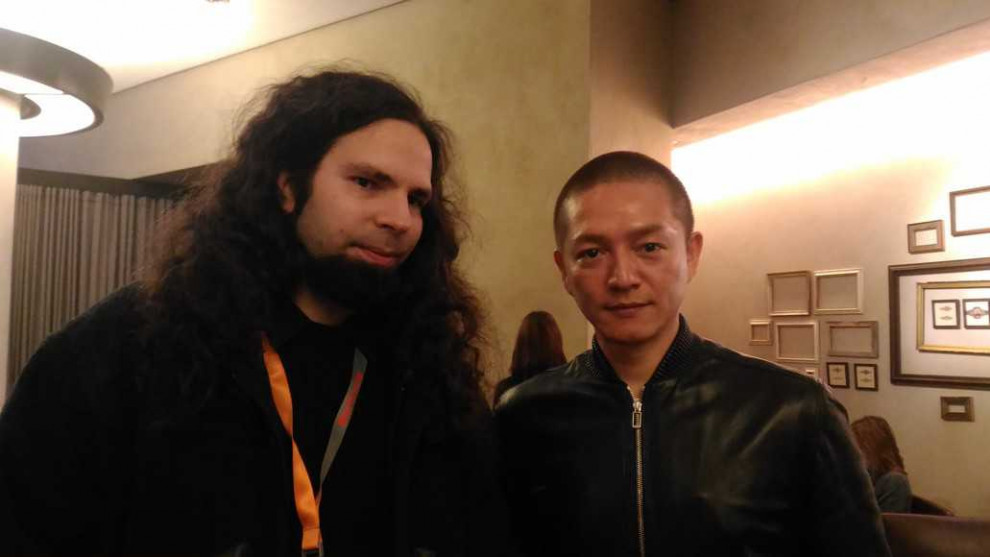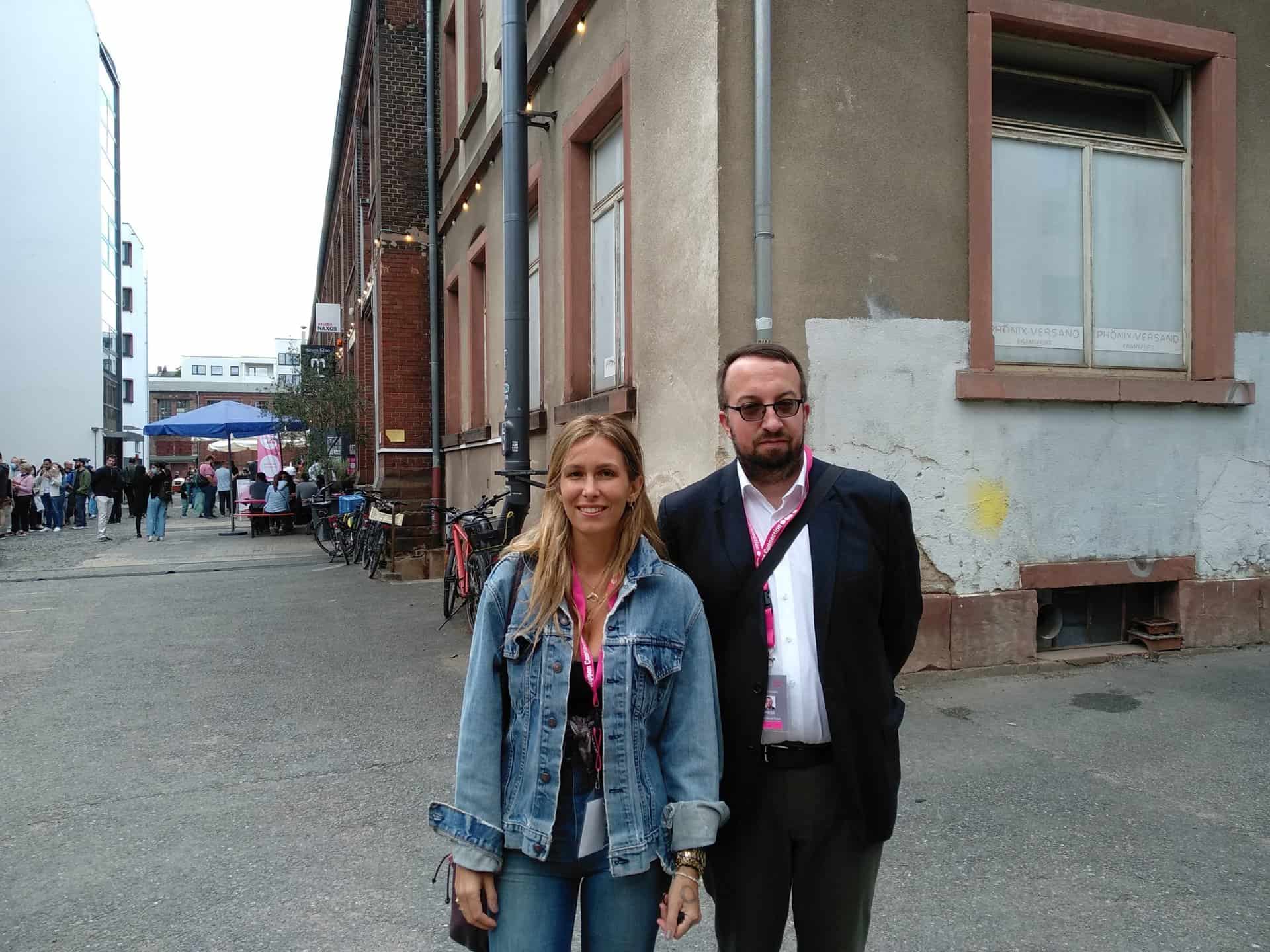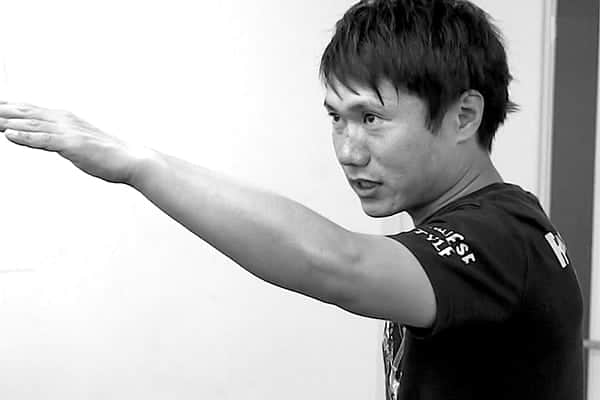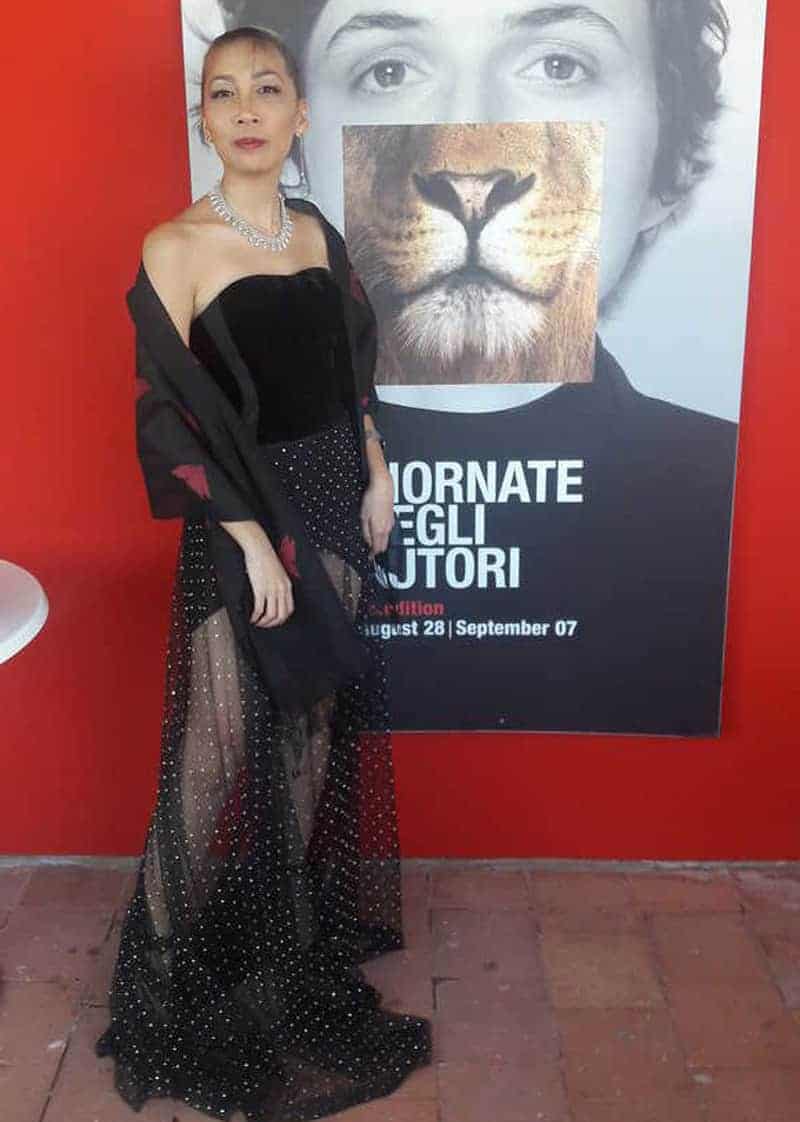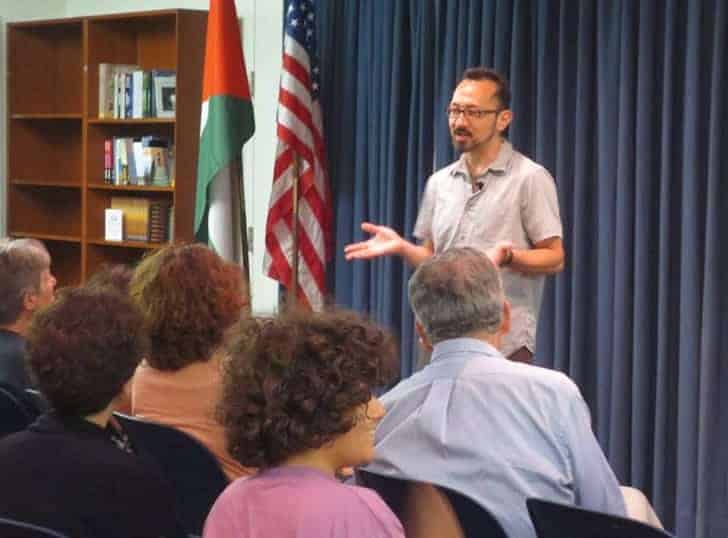Kei Chikaura was born in Japan in the year 1977. and before he got into filmmaking he majored in economics at the University of Osaka, while studying also film history. He learned the filmmaking trade while working for various production companies. Later on, Chikaura founded a production company through which he developed his shorts, some of them screened at the most prestigious film festivals.
His first feature film “Complicity” premiered in Toronto and was shown in Busan before its European premiere at Berlinale where we got the chance to have a quick chat about the film, food and its importance, soba and other topics.
“Complicity” is screening at Berlin Film Festival

“Complicity” is your feature debut. Can you tell me the difference regarding working on a feature versus working on a short film?
At first I thought that a feature film is a six-piece set of short films. Later, I found out I was totally wrong. It is very, very different. Also, it is hard to control all the details in the film, especially the timeline. I found it very difficult to control the emotion over the course of two hours. We have to keep the audience engaged over that period of time.
You were doing that via characters and the relationships in-between them. Did you have a clear idea about those right from the beginning? Were you getting to it, improvising during the very process?
I took my time developing my script and the characters and relationships were completely made during the script stage, not in the production stage.
Your film tackles a number of equally important topics, like the sense of family, migration, the life of the immigrant workers and food. Did you know much about migration to Japan? How hard was it for them?
I did a lot of research about that topic. At first, it was hard to find someone who will accept my interview, but finally I was able to meet some people who were illegal immigrants and to talk to them about their lives and difficulties fitting into the Japanese society. The insight I got from them was amazing. They felt more normal than I imagined, the lived normal lives, not some kind of underground existence. Just like other young people. It was precious for me to know them rather than to rely on television and newspaper stories.
“Complicity” is being shown at the Culinary Cinema sidebar. How important is the food for the film?
First time I heard “Complicity” was selected for Culinary Cinema, I did not feel that my film was so centered on food. It was not just about the food. But when I saw it again, as an audience, I saw the key role of the food in the film. So I opened my own director's notebook and went through the notes where I described how I intended to use the food as the catalyst for relationships between the characters. For example, when the protagonist first enters the soba restaurant, the restaurant master welcomed him with sukiyaki, which has its special place in Japanese tradition and is usually reserved for very important guests and special days. In that way, I wanted to show how much the soba master is different from the “regular” Japanese people who do not like Chinese. So, yes, the food plays really important role in the film.
And in your life? Are you a “foodie”? Do you care about food?
In my life, yes. I am very interested in food in general, not just in cinema.
What is so special about soba noodles that they deserved to play a key role in the film?
There are many different types of soba noodles and their history is more than one millennium long. Soba noodles are perceived as something traditionally Japanese, but they actually originated in China. It is an important thing to know to fight the prejudice. And in the film it works perfectly as a metaphor. Also, soba requires many, many skills, even though the dish seems simple and quiet and I find it quite Japanese.
Do you have your favourite recipe for soba that you could share with us?
There are many different recipes. Usually soba is made with 20% of wheat and 80% of buckwheat, but there are some recipes that demand 100% of buckwheat. It is hard and very difficult to make it. In “Complicity”, the legendary actor Tatsuya Fuji learned a lot about making a 100% buckwheat soba.


